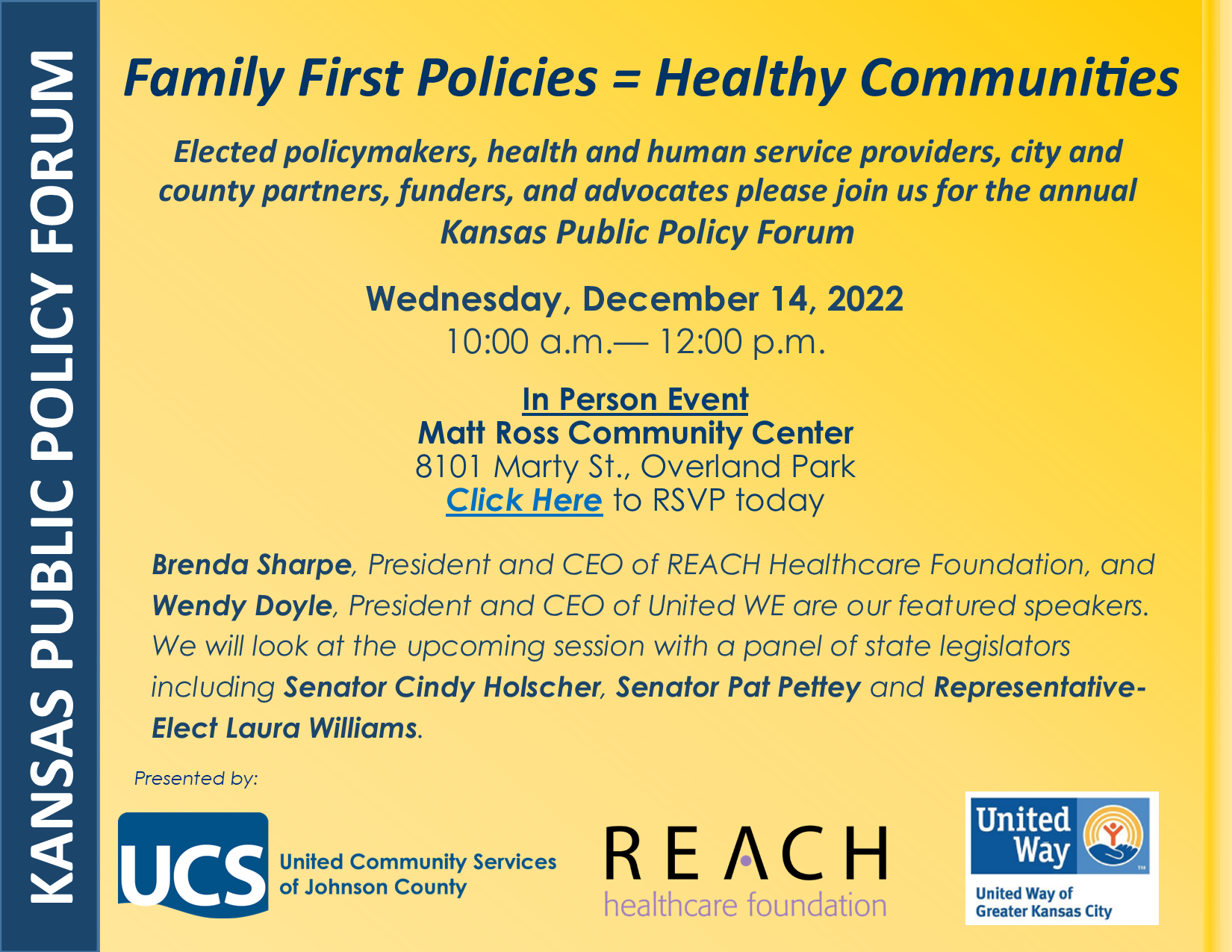Our Community’s Mental Health is Tied to Women’s Mental Health
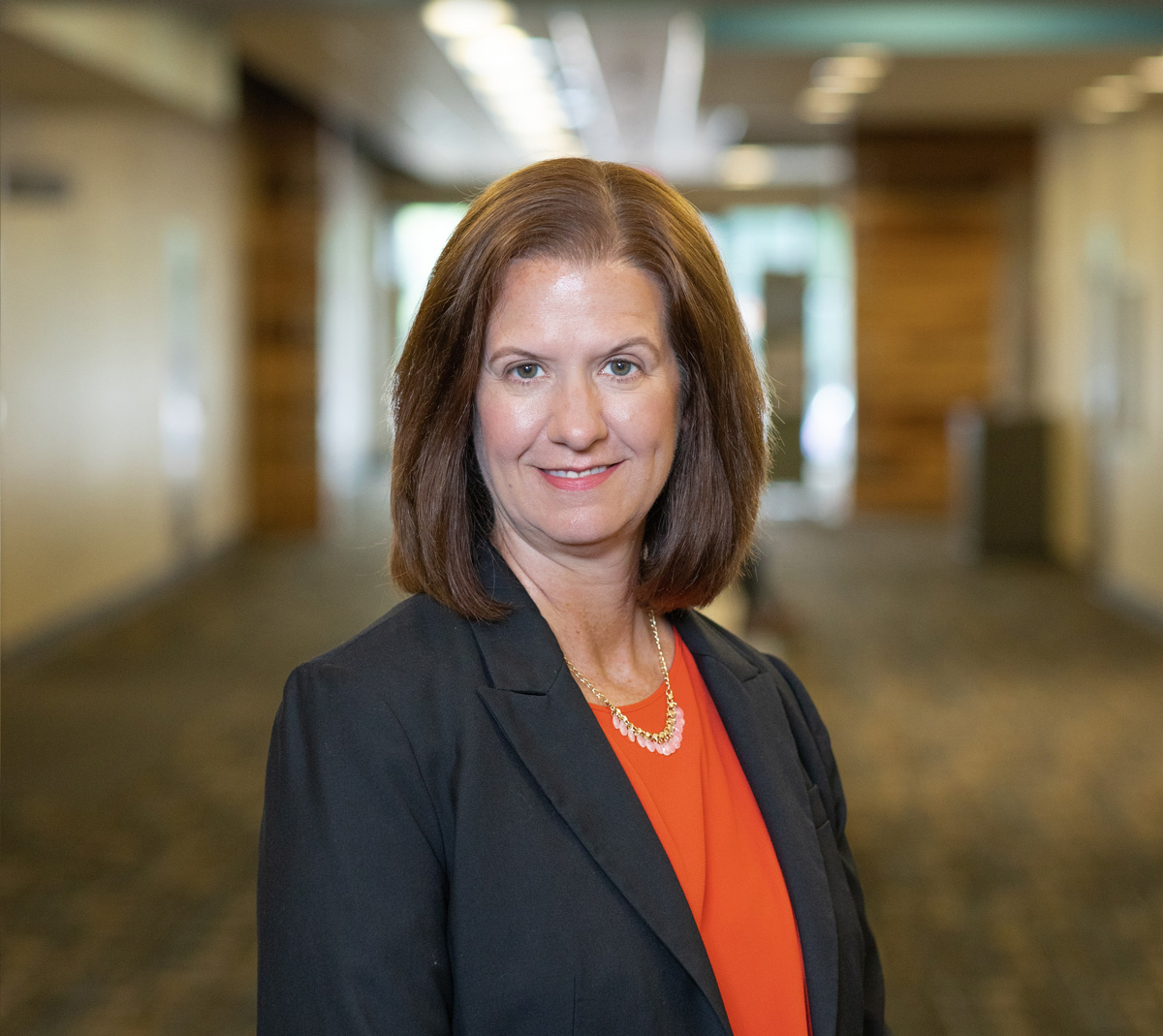
Susan Rome, Deputy Director
Johnson County Mental Health Center
Note: This article is focused on the biological differences between men and women and the variances in mental health between the two. We understand that not all gender identity fits into one of these two categories. This article does not exclude the validity of those who identify with other genders.
Our gender influences how we navigate, experience, and are viewed by the world. There are many social determinants of health that impact people’s health, well-being, and quality of life, including gender. Our gender affects our access to education, employment, income, social status, vulnerability to abuse, health-seeking behaviors, access to health services, and societal expectations. Evidence suggests that, compared to men, women are exposed to more risk factors linked to negative mental health outcomes, such as poverty, emotional and sexual abuse, and violence. Additionally, women are disproportionately affected by eating and weight disorders, post-traumatic stress disorder (PTSD), depression, anxiety disorders, bipolar disorder, and peripartum mental health conditions. Learning to protect our mental health and cultivate well-being is an important skill for women that affects not only them but their children, families, and communities.
Mental disorders and mental health conditions affect women in different ways from men. Experiences and symptoms vary between genders; some mental health conditions only appear in women, and many social and economic factors put women at a greater risk for poor mental health. So, what accounts for these disparities? Physical, genetic, and psychosocial factors all impact the variations in mental health conditions in women and affect women’s mental health and well-being: gender-based violence, sexism, misogyny, double standards, impossible expectations, “superwoman syndrome,” self-doubt, chronic shaming, and more. Additionally, many women experience racism, classism, ableism, and/or xenophobia.
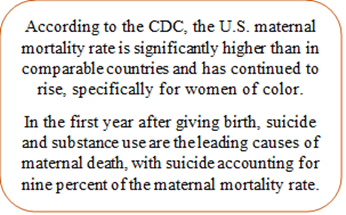 Gender is an impactful factor in mental health, and there is no denying that mood and mental health play an important role in all our lives. Women spend their lives adjusting to and understanding their bodies; throughout life, we go through hormonal fluctuations, such as during puberty, menstrual cycles, pregnancy, postpartum, breastfeeding, perimenopause, and menopause. These lifecycle transitions come with a host of symptoms and can include depressed moods, anxiety, insomnia, trouble concentrating, mood swings, irritability, and energy changes. Unfortunately, the female body has long been misunderstood and under-researched. Studies show that female patients and people of color are more likely to have their symptoms dismissed by medical providers. Women often feel unheard and dismissed when health concerns are continually blamed on stress, hormones, and even imaginations.
Gender is an impactful factor in mental health, and there is no denying that mood and mental health play an important role in all our lives. Women spend their lives adjusting to and understanding their bodies; throughout life, we go through hormonal fluctuations, such as during puberty, menstrual cycles, pregnancy, postpartum, breastfeeding, perimenopause, and menopause. These lifecycle transitions come with a host of symptoms and can include depressed moods, anxiety, insomnia, trouble concentrating, mood swings, irritability, and energy changes. Unfortunately, the female body has long been misunderstood and under-researched. Studies show that female patients and people of color are more likely to have their symptoms dismissed by medical providers. Women often feel unheard and dismissed when health concerns are continually blamed on stress, hormones, and even imaginations.
A vulnerable transition period that is unique to women and often misunderstood is the time during pregnancy and postpartum; perinatal mental health refers to mental health during pregnancy and the postpartum period. According to the CDC, the U.S. maternal mortality rate is significantly higher than in comparable countries and has continued to rise, specifically for women of color. In the first year after giving birth, suicide and substance use are the leading causes of maternal death, with suicide accounting for nine percent of the maternal mortality rate. Maternal mental health conditions, such as anxiety, perinatal and postpartum depression, and birth-related PTSD affect one in five women and are the most common complications of pregnancy and childbirth. Unfortunately, 75% of those affected will go untreated even though these conditions respond well to early interventions and treatment.
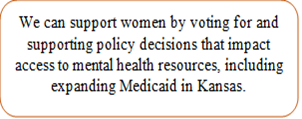 Supporting and addressing the mental health and well-being of women is critical to the well-being of our communities. To support women in fostering their mental health and wellness, we must validate women’s feelings by listening to women and giving them a voice, raising awareness about women’s health issues, and letting go of unrealistic expectations (i.e. societal beauty standards, “superwoman syndrome” – perfectly juggling a career, family, home, exercise, and social activities) that are often placed on women.
Supporting and addressing the mental health and well-being of women is critical to the well-being of our communities. To support women in fostering their mental health and wellness, we must validate women’s feelings by listening to women and giving them a voice, raising awareness about women’s health issues, and letting go of unrealistic expectations (i.e. societal beauty standards, “superwoman syndrome” – perfectly juggling a career, family, home, exercise, and social activities) that are often placed on women.
We can support women by voting for and supporting policy decisions that impact access to mental health resources, including expanding Medicaid in Kansas. Women are more likely to live in poverty and more likely to be primary caregivers for their families, making Medicaid Expansion immensely important for women who rely more heavily on Medicaid coverage than men. Medicaid Expansion would allow tens of thousands of women in Kansas to gain access to affordable family planning services, including birth control, which is directly linked with women’s health and economic security.
It’s hard to know where or how to begin to address systemic problems, but we can start right here in Johnson County. Through education and destigmatizing efforts, we can all do our part to help women better understand their mental health and encourage them to seek help when they need it.
Unique Stressors Affect Women’s Mental Health
By Mike Sherry
OnPoint Communications
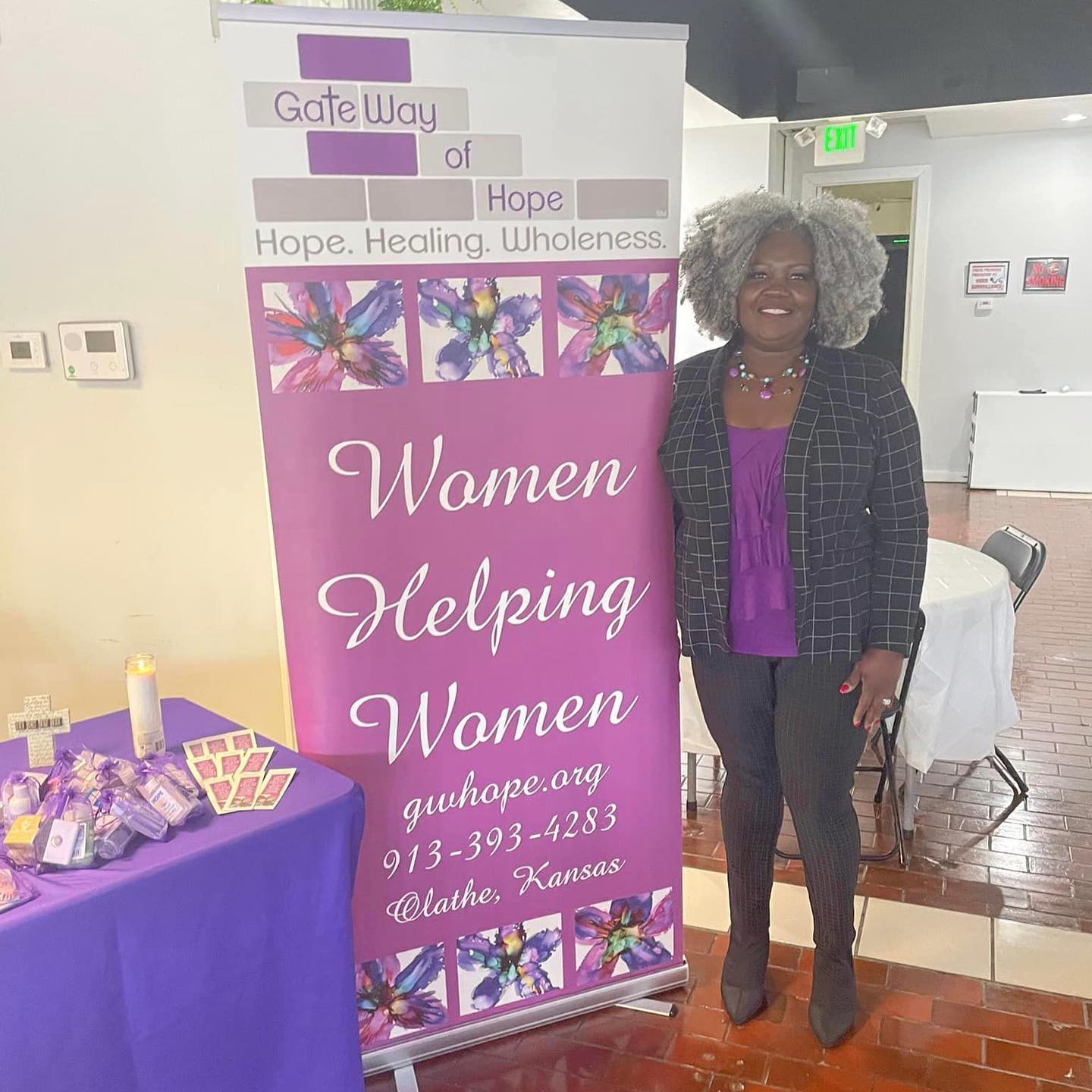
Gloria Derritt, a counselor at GateWay of Hope, represented the counseling center at the Mental Health Awareness Day that JBR Women’s Ministry put on last month in Kansas City, Missouri.
It was intermission of the Motown musical at Starlight Theatre, and not long after Gloria Derritt struck up a conversation in the bathroom line, her new acquaintance was unloading about her problems.
Laughing at the memory, Derritt said, “I was just like, ‘OK, OK, well sure, hey, I’ve had my share of life’s struggles and troubles,’ and she just — it was kind of like a counseling session just standing in this line.”
That situation was unusual, but Derritt, 54, has a motherliness about her that naturally puts people at ease — either informally or in her work as a counselor at GateWay of Hope, a faith-based nonprofit in Olathe, Kansas, dedicated to serving the mental health needs of women.
Derritt’s own backstory can also inspire others, including GateWay of Hope’s Executive Director Dacia Moore, who knows that today’s women are in a tough spot.
Stay-at-home moms wonder if they should be working outside the home, and working moms feel guilty about not being home with their kids — while Moore said our mobile society may mean that women are far away from family support. Women trying to do it all, sometimes feel like they are doing nothing well.
Predisposed to being fixers, Moore said women can be more pessimistic than men by focusing on what is missing. And with all the stressors brought on by the pandemic, Moore said, “People who are already worriers are probably worse worriers now.”
Derritt is the women of color outreach coordinator for GateWay of Hope, and though she is now happily married with a blended family of five kids (ranging in age from 31 to 17), she was at one time a worried 23-year-old with an unplanned first pregnancy. And then a dozen years later, she was a struggling single mom after her divorce.
At one point a couple at her church, Sheffield Family Life Center in Kansas City, Missouri, announced they had some food to give away. The offer was probably aimed at her, Derritt said, but the couple kept it general to spare her any embarrassment.
“I’m not going to ask him for food,” she told herself. She ultimately swallowed her pride and told the man she and her boys could use some food. He was there the next week with his van.
Derritt also found GateWay of Hope through church when a flier from the agency appeared on a table during choir rehearsal. Gateway of Hope’s call for assistance seemed preordained because the Lord had been telling Derritt during her prayer time that she should find a place to volunteer.
Her volunteering began as she was working on her bachelor’s degree in biblical counseling, and she has gone on to earn her master’s in counseling as well.
The stigma against seeking mental health counseling is strong among women of color, Derritt said, either through a sense of pride or a culture of privacy. Women of faith may also resist help outside of church, even though the Bible talks about wise counsel.
“It is so important that people of faith don’t have to feel like they are walking out on God because they decided to get some counseling,” Derritt said. “I believe it can all work together to bring about a healthy person for mental health.”
Fact Sheet: Women’s Mental Health
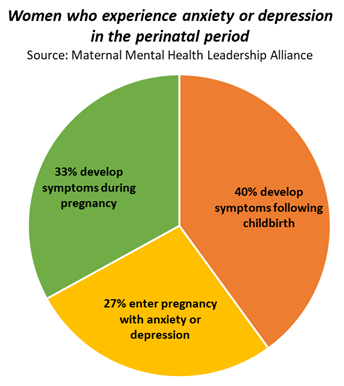 Mental health struggles are serious medical conditions that affect people’s thoughts, feelings, moods, behavior, physical health, and social functioning. The mental health of an individual also has implications for their family and community. There are many factors contributing to mental illness such as genetics, personality traits or childhood experiences. Recent data from the U.S. Census Bureau’s Household Pulse Survey indicates that in Kansas women are more likely to experience feelings of anxiety than men. Certain types of disorders are more common for women, such as depression and anxiety. There are also certain types of disorders that are unique to women, such as perinatal mood disorders.
Mental health struggles are serious medical conditions that affect people’s thoughts, feelings, moods, behavior, physical health, and social functioning. The mental health of an individual also has implications for their family and community. There are many factors contributing to mental illness such as genetics, personality traits or childhood experiences. Recent data from the U.S. Census Bureau’s Household Pulse Survey indicates that in Kansas women are more likely to experience feelings of anxiety than men. Certain types of disorders are more common for women, such as depression and anxiety. There are also certain types of disorders that are unique to women, such as perinatal mood disorders.
Women living in poverty and women of color are more likely to experience perinatal mental health disorders and less likely to get help due to systemic and cultural factors, including lack of access to culturally appropriate healthcare; biases in the healthcare system; barriers to care such as lack of transportation or childcare; shame and stigmas; or fear of retaliation from state agencies like child protective services.
One of the best and most highly recommended ways to improve perinatal mental health outcomes is to increase the proportion of mothers screened for postpartum depression during a prenatal and postpartum visit. Further, expanding Medicaid can help ensure that mothers at highest risk for perinatal mental health disorders receive the treatment they need to create healthy environments for their children.
Read our report on women’s mental health in our fact sheet.
Support UCS in the United Way Campaign!
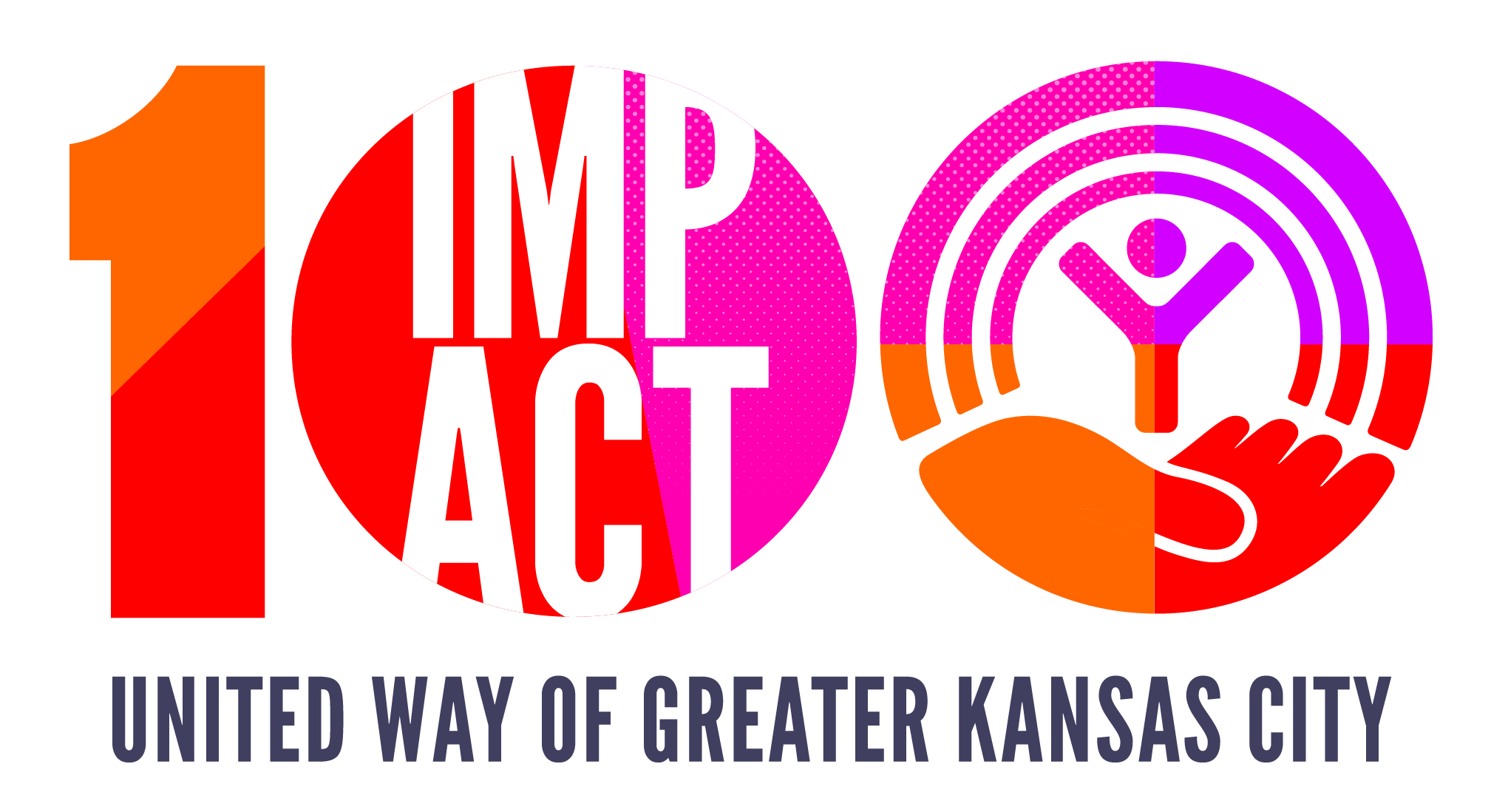
As United Way workplace campaigns ramp up across the metro, we wanted to let you know that we're one of United Way's inaugural Impact 100 organizations. With that designation, you can easily direct your campaign contribution to United Community Services of Johnson County. Simply choose United Community Services of Johnson County from the list of Impact 100 organizations when completing your pledge.
Since 1967, UCS has incubated programs to meet identified community needs, bringing the community together to promote economic stability by furthering health and human services initiatives. Often UCS's work has a "ripple effect" inspiring new opportunities for improving the lives of Johnson County residents through education and advocacy, collaborative planning, and targeted resource allocation.
UCS will use United Way campaign contribution funding to help us continue this important work. You can view a visual and interactive timeline of our projects and initiatives through the years on our website here.
Health Insurance Marketplace Open with Application Assistance from Health Partnership Clinic

The Health Insurance Marketplace (also known as the “Marketplace” or “exchange”) opens Tuesday, Nov. 1 and will close Sunday, Jan. 15. The Marketplace provides health plan shopping and enrollment services through websites, call centers and in-person help.
Health Partnership Clinic offers free, in-person help with the health insurance application. Open enrollment is from Tuesday, Nov. 1-Sunday, Jan. 15.
Call 913-730-3653 to schedule an appointment. A certified application counselor is available to help you in English or Spanish.
When you apply for individual and family coverage through the Marketplace, you’ll provide income and household information. You’ll find out if you qualify for premium tax credits and other savings that make insurance more affordable; or coverage through the Medicaid and Children’s Health Insurance Program (CHIP).
The Kansas Homeowner Assistance Fund (KHAF) Program is Open for Applications!

Help for Kansas Homeowners – Don’t Wait
If the pandemic has created financial stress causing you to miss mortgage and/or property tax payments, you may qualify for the Kansas Homeowner Assistance Fund (KHAF), a program for low- to moderate-income homeowners. Learn more and apply here: https://kshousingcorp.org/kansas-homeowner-assistance-fund #homeownership #mortgageassistance #avoidforeclosure
Help for Kansas Homeowners – Apply Now
If you’re behind on mortgage or property tax payments, help is here. The Kansas Homeowner Assistance Fund is helping homeowners across the state who have fallen behind on payments. Apply today.
https://kshousingcorp.org/kansas-homeowner-assistance-fund
Help for Kansas Homeowners – Funds won’t last long.
Don’t wait to ask for help if you need it. The Kansas Homeowner Assistance Fund can help you pay your past due bills:
- Mortgages
- Property taxes
- Homeowner association fees
https://kshousingcorp.org/kansas-homeowner-assistance-fund
The purpose of the KHAF program, is to prevent foreclosures on homeowners suffering pandemic-related financial hardship.
Homeowner submits an online application.
* Application is processed to ensure all eligibility criteria are met.
* If approved, funds are paid directly to the service provider(s), who apply to the homeowner’s account(s).
Applicants must meet all of the following criteria:
- You own your home in Kansas and are at least 30 days past due on mortgage or property taxes.
- The property (a single-family home, one-to-four-unit dwelling, condo, townhome, or manufactured home) is your primary residence.
- Your recent income did not exceed 150 percent of your area’s median income.
- Your household has experienced financial hardship during the COVID pandemic and attests to this hardship.
For help with your application or understanding the process, Habitat for Humanity of Kansas City is providing assistance. Reach out to:
Kylie Navarro, knavarro@habitatkc.org or (816)924-1096 X 1040
Shawn Brantley, sbrantley@habitatkc.org or (816)924-1096 X 1041


